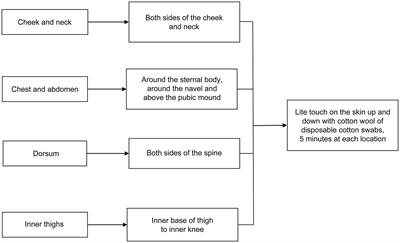SYSTEMATIC REVIEW
Published on 25 Mar 2025
The role of affective touch in mental illness: a systematic review of CT fiber dysregulation in psychological disorders and the therapeutic potential of CT fiber stimulation
doi 10.3389/fpsyt.2025.1498006
- 611 views

